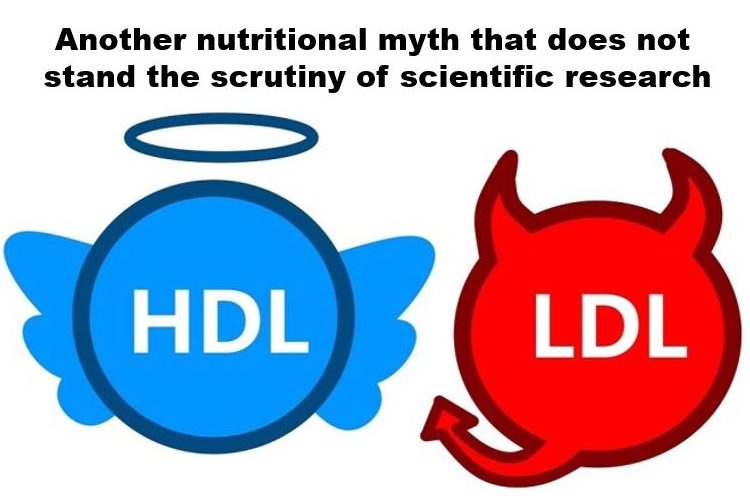Scientists believe they are smarter than Mother Nature 😊
We have known for decades, if not centuries or millennia, that animal fats do not kill us.
They do not cause heart disease, cancer or diabetes. Research confirms this!
But the medical community chooses to maintain its stance on this misconception.
I simply cannot fathom this belief, when there is research and evidence that points tothe contrary.
I spent 8 years going over the scientific literature on this topic and reviewed more than1600 scientific articles for a book that I published 2 years ago. I published it in French because there was no book on this topic at the time, but I hope to translate it in English soon.
The evidence is overwhelming; animal fats are safe for human consumption.
The medical community has been recommending to cut out animal fats for decades.
Yet, Americans continue to get fatter and sicker.
Don’t they see what they have done?
As I said, animal fats do not cause heart disease.
As a matter of fact, the main source of energy for the heart is saturated fat!
A recent international study published confirms what we have known for decades: LDL cholesterol is not an accurate predictor of future cardiovascular events and is not a good indicator of the underlying causes of heart disease.
Published in the European Heart Journal and titled, “ Development and validation of a ceramide- and phospholipid-based cardiovascular risk estimation score for coronary artery disease patients ,” the study sought to identify whether LDL-cholesterol is best in predicting heart attack risk in coronary heart disease (CHD) patients.
The study found that despite assumptions that all CHD patients have equivalent cardiovascular disease risk, the 10-year cardiovascular disease risk of a CHD patient varies from 5% to over 20%, which is a big range.
Presently, the primary tool used to identify cardiovascular disease risk, and to reduce it, is LDL cholesterol and LDL cholesterol suppressing drugs (statins), respectively.
Despite this, LDL cholesterol was not found to be effective in identifying who are the more high-risk patients for cardiovascular death or heart attack:
“The most critical biomarker in the cardiovascular field, LDL-C, showed a very weak association in predicting outcomes. While LDL-C plays a central role in the etiology of atherosclerosis, its value as a biomarker in secondary prevention appears limited across all studies.”
In other words, LDL-C has nothing to do with heart disease!
“CERT (Cardiovascular Event Risk Test) identifies the risk of a heart attack more accurately than LDL-cholesterol or LDL-cholesterol based measurements. CERT enables patient stratification into risk groups more accurately than the currently used lipid tests and provides an enhanced tool for capturing the risk. CERT, and its latest version CERT2 is a blood test that measures ceramide lipids by mass spectrometry.
Plasma ceramides represent the next generation of clinical predictors for adverse cardiovascular events resulting from unstable atherosclerotic plaques. Ceramides are bioactive lipids that play a central role in cell membrane integrity, cellular stress response, inflammation, and cell death.”
CERT is a new type of blood test that could be used to help physicians identify which patients, with and without evidence of coronary blockages, are at risk of a cardiovascular event.
Developed by researchers at the Mayo Clinic in the USA, the test measures blood concentrations of plasma ceramides, a class of lipids that are highly linked to cardiovascular disease processes. It is believed to be sensitive enough that even individuals with normal levels of low-density lipoprotein (LDL), who are still at risk, may be identified.
Ceramides are lipids and, like cholesterol, are carried by LDL and become embedded in the arterial wall of atherosclerotic plaques.
But as Dr. Jeff Meeusen, co-director of Cardiovascular Laboratory Medicine at Mayo Clinic, explained: ‘Unlike cholesterol, which is mostly inert (both in the LDL and in the artery wall), ceramides are biologically active signal molecules that contribute to the pathophysiology of heart disease.’
Ceramides in the LDL increase the rate of lipoprotein infiltration across vascular endothelium, while ceramides in the vascular intima stimulate cytokines that draw inflammatory immune cells to the plaque site.
‘Ceramides in the plaque disrupt endothelial cell function preventing normal vasodilation/vasoconstriction’, he added, ‘while ceramides also activate platelets, increasing the likelihood of clots.’
The latest study, led by Dr. Meeusen, showed that individuals with the highest levels of blood ceramides were found to have a 3–4 times greater risk of having a cardiovascular event compared to those with the lowest ceramide score, regardless of their LDL cholesterol level or the presence of coronary artery stenosis.
The study covered 499 Mayo Clinic patients who were referred for coronary
angiography to check for possible stenosis and were followed prospectively for 18 years, with researchers recording occurrences of myocardial infarction, stroke, revascularization, and death.
Patients were similar in age, blood pressure range, smoking status, and high-density lipoprotein (HDL), while those excluded were those who had diabetes or a previous myocardial infarction, stroke or procedure to open stenosed coronary arteries.
Researchers measured four different types of ceramides in the blood at baseline—three linked with cardiovascular disease and a fourth that is abundant in all cells and not specifically associated with the disease, but useful to normalize for intra-individual variability.
From this, the Mayo team utilized a Ceramide Risk Score which was previously developed by their Finnish collaborators and published in the European Heart Journal as a FASTTRACK CLINICAL RESEARCH article in 2016, Plasma ceramides predict cardiovascular death in patients with stable coronary artery disease and acute coronary syndromes beyond LDL-cholesterol. This score is a 12-point scale with interpretive categories as follows: 0–2 (lower risk), 3–6 (moderate risk), 7–9 (intermediate risk) and 10–12 (higher risk).
Clinical chemist Dr. Meeusen said: ‘Our research suggests that evaluating ceramide levels in patients who are not at immediate risk for coronary artery disease events may help cardiologists decide who could benefit from proactive and preventive treatment, such as statins, or lifestyle changes to prevent a serious cardiac event down the road.’
Given the fact that cardiovascular diseases are the leading cause of death worldwide, misidentifying LDL cholesterol as the primary cause of heart disease, and then promoting LDL cholesterol suppression therapies like statin drugs as a solution, is a tragic mistake.
Actually, it kills people!
Especially given that statin drugs have over 300 adverse effects that have been identified, including heart failure.
Also, ceramide-based tests are especially interesting from a nutritional perspective. Two out of three phospholipids selected in the CERT2 test contained Omega-3 polyunsaturated fatty acids (PUFAs).
The authors of the study noted that, “Both DPA (22:5) and docosahexaenoic acid (22:6) belong to the omega3 (n − 3) fatty acid series, which may have several positive CHD-related effects, such as antithrombotic and anti-inflammatory effects, in addition to influencing overall lipid metabolism, heart rate, blood pressure, and endothelial function.”
The study, therefore, indicates that certain dietary practices, such as the consumption of omega-3 fatty acids, may positively contribute towards ceramide profiles indicative of lower cardiovascular disease risk, as identified through the CERT2 risk stratification test.
Given the robust literature on the therapeutic benefit of fish oil (one of the only sources of DHA in the human diet today) for cardiovascular health, could this indicate that fish oil may provide a natural alternative to statin drugs?
Given the latest research, and the well-known problems with the statin-based approach to preventing heart disease , one thing is true, LDL cholesterol is not an accurate surrogate marker of cardiovascular disease risk.
Consequently, the conventional statin-based standard of care is no longer supported by scientific evidence.
Nutrition is the key to improving and preventing heart disease, and a high quality fish oil is one of the primary tools that we recommend.




